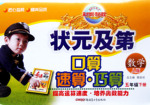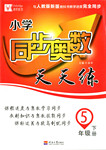题目内容
After the earthquake I went there, I saw the whole town____, and now everything has changed.
A. in ruins B. in poverty
C. in disorder D. in rags
A
【解析】
试题分析: 考查介词辨析A. in ruins成废墟;B. in poverty在贫困中;C. in disorder紊乱;D. in rags衣衫褴褛;句意:地震后,我去那,我看到整个小镇处成为废墟,现在变化很大。根据now everything has changed可知选A项。
考点 : 考查介词辨析

练习册系列答案
 状元及第系列答案
状元及第系列答案 同步奥数系列答案
同步奥数系列答案
相关题目
 what to abandon and what to keep.
what to abandon and what to keep. aved B. enjoyed C. purchased D. designed
aved B. enjoyed C. purchased D. designed